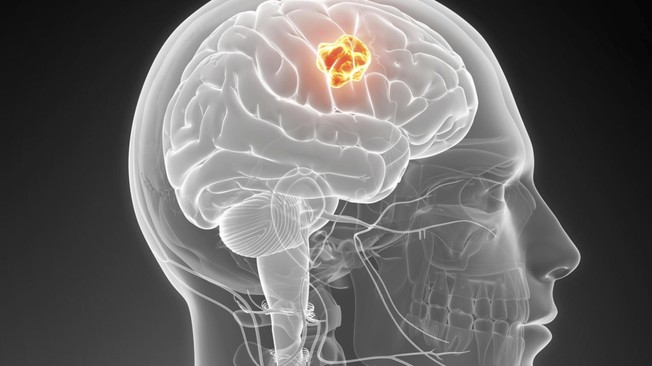Contents:
- Medical Video: Mom vs. Dad: What Did You Inherit?
- Link between the X chromosome and intelligence
- Research on inherited intelligence
- Other factors that affect children's intelligence
Medical Video: Mom vs. Dad: What Did You Inherit?
Children's intelligence is inherited from their parents, but is it true that this is mainly derived from the mother? How about father? In China, many pondered the answers to these questions after the appearance of an article on Sina Weibo. The article states that the genetic makeup of a mother has as much as three times the influence in determining a child's intelligence compared to a father.
The article said, "To find out whether a child will be smart or not, what is needed is just by looking at his mother. For men who consider themselves not intelligent, it is important for them to find a smart wife. "But is that true? Let's see the answer below!
Link between the X chromosome and intelligence
The explanation given in the article above is that the genes that determine intelligence are located on the X chromosome (chromosomes of female genetic carriers). However, he does not cite any scientific studies to provide any source for each statement.
According to Satoshi Kanazawa in his article, general intelligence is known to be very inherited, and genes that affect general intelligence are thought to be on the X chromosome. That means that boys inherit their general intelligence from the mother alone, while girls inherit their general intelligence from mother and father they. So, women should be able to influence the general intelligence of future generations higher than men.
According to the 1991 article PubMed Central (PMC), if there are genes that directly determine the intelligence of children, one of them will expect that these gene mutations can produce phenotypes that show effects only on intelligence, and perhaps also with secondary effects on behavior. and personality. If so, there should be no somatic changes, no metabolic abnormalities that can be identified, no other neurological signs, and no development of intelligence through age.
Si Dayong, an evolution lecturer at Jilin University, rejected the direct statement made in the Weibo article. "The offspring of certain types of sex have nothing to do with the X and Y chromosomes, but a kind of epigenetic lineage (traits that are not caused by changes in the DNA sequence, but are caused by changes in gene expression)," he said. "I haven't found a certain trait that can be lowered more than a mother or father."
Research on inherited intelligence
A study in the 1982 academic journal Behavior Science looked at correlations between parents and children, to consider the IQ that the correlation between maternal and child intelligence was slightly higher at 0.464 compared to a father and child at 0.423.
"I don't think that this slight difference can be considered statistically significant," Si said. "In addition, genetic inheritance is random and complex, beyond human imagination."
Although it has long been believed that heredity plays a role in children's intelligence, new studies show that it has less role than previously thought.
A 2013 study conducted by researchers from the University of Queensland analyzed the DNA and IQ test results of more than 18,000 children from Australia, the Netherlands, England and America. The result was that they found that hereditary factors accounted for 20-40 percent of children's IQ variation, which was lower than previously estimated.
The researchers further concluded that no single gene variant can strongly predict children's intelligence, and that intelligence inherited genetically is the cumulative effect of many different genes.
Zhao Bowen, a researcher at Shenzhen Huada Gene Research Institute, outlined the findings in an article on knowgene.com in 2014.
"At present, there is no DNA site that directly decides that human intelligence has been found," he said. "The genetic influence of parents on children's intelligence can be more and even less. And children's intelligence tends to have a normal distribution curve, with the average intelligence of both parents as a median. "
Xu Gelin, a neurologist in Nanjing General Hospital of Nanjing Military Command, stressed in a Jinling Evening News report published in November 2014, that genetic heredity is very complicated and random, and that both mothers and fathers have varying degrees of genetic influence in children they.
"For example, if mothers have high IQs, and fathers have low IQs, their children will most likely be in the middle of it," Xu said. It is a statement of contradiction from what is said in Weibo, that to find out the intelligence of a child one of the things needed is to look at the mother. "Of course, it is also well recognized that a child whose parents have a high IQ will generally be quite smart."
Other factors that affect children's intelligence
Dr. Rachel Brouwer, from the Department of Psychiatry at Utrecht University Medical Center in the Netherlands, said that it is true that you can predict children's IQ, more based on parental IQ than on their brain changes, at the group level.
"So, in general, parents who are very intelligent will produce very intelligent children. However, this is not absolute, and it is possible for both parents who have low intelligence to produce children who have a high IQ, and vice versa. "Dr. Brouwer also stressed that the environment has an influence on intelligence, although this influence will be smaller if children are more mature.
Catherine Scott's senior lecturer at Melbourne University's Graduate School of Education places a stronger emphasis on the role of environment and history. "Children don't just share genes," he said. "They also share family, and environment. It also has many relationships with what they eat, and what their mothers eat. "
BACA ALSO:
- Genetic Testing: Detecting If You Have Hereditary Disease
- Could Twin Pregnancy Without Twins?
- Is Type 2 Diabetes Caused by Hereditary Factors?












